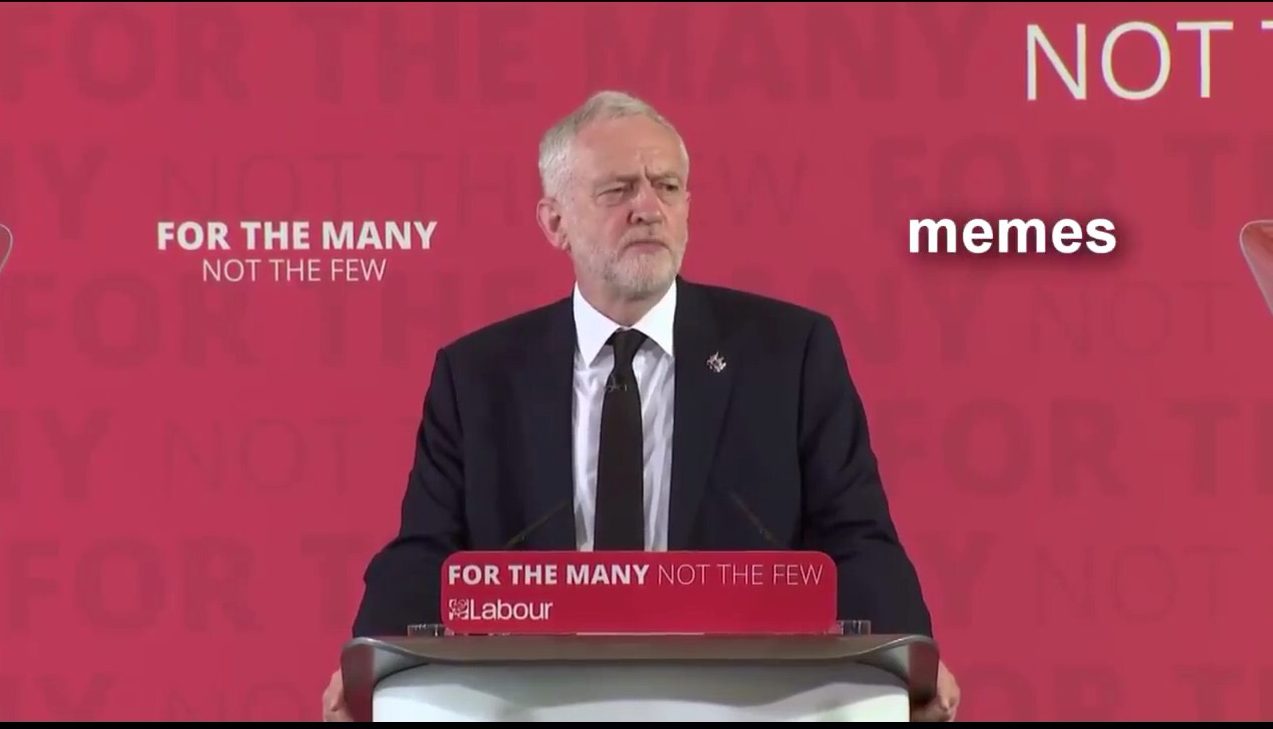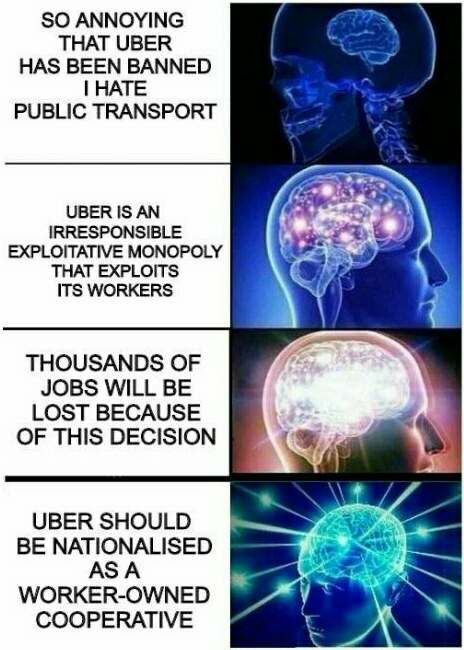How Memes Are Spreading ‘Acid Corbynism’
by Ina Fever
5 October 2017

Why was the simple matter of Jeremy Corbyn snubbing Piers Morgan so funny? Have June 8 Shitposting Social Club, a political satire Facebook group, made the perfect pro-Corbyn meme? A beautiful rebuttal of one of prime time’s prime idiots, Morgan is paid millions to peddle toxic lies all day, yet he got played by Corbyn and Arsenal footballer Hector Bellerin when they hilariously froze him out of their conversation at the GQ awards by only speaking in Spanish. It was an underdog triumph in the playground, a Recess-level comeuppance and a reversal of hierarchies that speaks a lot to the phenomena and feeling around the Labour leader.
What is this feeling? What is this powerful, sometimes dizzying thrill you get from devouring these oh-so spicy, dank and nutty Corbyn memes? The effect seems especially potent when combined with expressing dissent from the latest Conservative press briefing attack line on the Corbyn project. Not only does it work to mock mainstream media’s persistent attempts to manage what is politically possible – from Piers Morgan’s TV shows to print media columnists to BBC news broadcasts – it also does something more positive, which is, crucially, shared and accessible. Here we have sweet, sweet content that’s optimistic, hyperbolic and full of bravado. Its effect is similar to a private joke told among friends; a hilarious, swirling vortex that multiplies instantiations of friendships, healing, however briefly, feelings of loneliness and isolation. It’s satisfying to feel like this rather than the usual, overriding despair at the state of the world.
Therefore, in however small a way, it seems that these memes work to spread messages of optimism. The jokes have a real political potential, finding their expression perhaps most succinctly in Novara’s own Aaron Bastani’s gleeful refrains of “it’ll go higher” during Labour’s continual polling rise in the election campaign. Such bold and exaggerated claims are the main feature of pro-Corbyn memes. To borrow an expression from the late, cultural-theorist Mark Fisher, these memes are exercises in ‘consciousness inflation’. They are moments, or short trips, that erode Margaret Thatcher’s infamous slogan, “there is no alternative”. The deliberately bolshy overreach of the memes is a way of imagining things as better rather than merely accepting them as they are.
At its root, the claim of the pro-Corbyn memes is that the character of reality is plasticity; it’s malleable and open to change. Thatcher’s “there is no alternative” line was not simply the depressed voice of experience, which is how it presented itself, but rather a claim on realism to be nothing other than what had already gone before, but slightly worse. The apparent downerist truth of Thatcher’s claim was incredibly powerful. Even the signature tune of 1997 Britpop euphoria – Things Can Only Get Better – is undercut with slight desperation and only a small claim on hope.
It’s the statement that our situation is materially up for grabs that might be the real drive of the whole Corbynist phenomena that was on show at The World Transformed in Brighton. Rather than feeling unsatisfactory, Corbyn’s slightly vague claims of democratizing society speak to this promise of greater political sovereignty outside of the current world order of so-called experts running the country. Hence all the “taking backs” of John McDonnell’s conference speech. Here, they are stripped of their mean-spirited just-for-us Brexitism and recast as autonomy for all.
This idea of reality being malleable has been most developed in the work around Acid Corbynism. Taken from Mark Fisher and Jeremy Gilbert’s work on Acid Communism, where ‘acid’ is used as a tool to describe an attitude of improvisation and creativity towards the world. In a video from February 2016, Mark talked about The Beatles mainstreaming the plasticity of consciousness and reality. Saying that things don’t always have to be this way is not naïve and utopian. It’s a method of consciousness inflation, so that ‘why should I pay this exorbitant rent?’ quickly turns into ‘rent controls now!’ Bolting this to the Corbyn project, as Matthew Phull and Will Stronge have written, calls up the joyous effect of the meme culture around Corbyn and orientates the project towards a fully-automated luxury future.

Have we hit peak pro-Corbyn memes? My immediate sense now is that no, it’ll get funnier. The task now is to open it up even more, and expand on what Corbyn called “a new common sense”. Concepts of debt must be made toxic, John McDonnell has already clarified that interest payments of more than 100% of the original loan are now null and void. Let’s expand that concept of what constitutes toxic debt.
Using ideas from the New Economics Foundation, McDonnell also called into question the very nature of work, arguing that jobs shouldn’t be menial but meaningful. This is huge. Corporations always bleat on about how many jobs they create and how thankful we should be about getting one, however boring or pointless it may be. The eradication of permanent miserabilism at work should be at the heart of a leftist-outrider project.
#Corbyn2017 wants rent controls. But what are the demands for #Corbyn2018, #Corbyn2019 or whenever Theresa May decides to go for another walk? What would be new and acid about it? How can Corbynism become acid? My own personal demand, which, if Fisher taught us anything, is not just individual, but potentially collective, is a blanket ban on my boss WhatsApping me outside of work hours and automatic double-pay per mundane holiday snap I receive. Email strikes on weekends now. Summer is over, Acid Corbynism is coming.